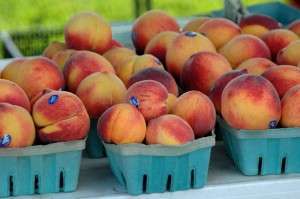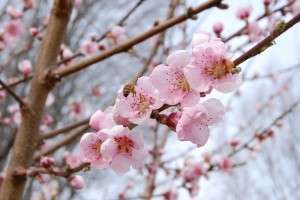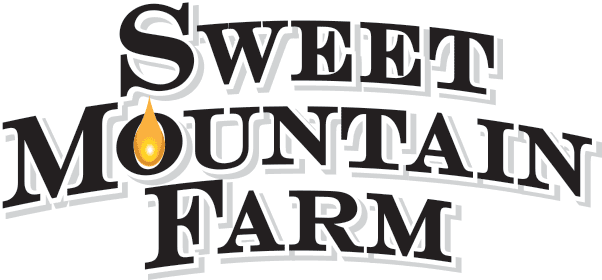Why do Farmers Need Bees?

This blog was first published in 2012 (revised 9.23.16).
 Summer is a time for sinking your teeth into a large juicy peach or a slice of ice cold watermelon from your local roadside farm stand. Is it my imagination, or are the distinct, remarkable flavors of that juicy peach from long ago gone? As a child I remember my father giving me a dime so that I could purchase a piece of fruit from the corner grocer. The flavor and sweetness dripped from my mouth. So, what has changed? The answer is simple. The fruit blossom didn’t get pollinated well enough when the fruit was formed.
Summer is a time for sinking your teeth into a large juicy peach or a slice of ice cold watermelon from your local roadside farm stand. Is it my imagination, or are the distinct, remarkable flavors of that juicy peach from long ago gone? As a child I remember my father giving me a dime so that I could purchase a piece of fruit from the corner grocer. The flavor and sweetness dripped from my mouth. So, what has changed? The answer is simple. The fruit blossom didn’t get pollinated well enough when the fruit was formed.
 That fruit blossom needs to be pollinated by bees so that it will make seeds. The simple fact is, if you want a tasty piece of fruit, the fruit needs to be pollinated. The more bee visits, the tastier the fruit. As a seed develops, it produces hormones in the seed that cause it to ripen and sweeten. Without pollinated seeds there are no hormones, without hormones the fruit (or vegetable) tastes lousy.
That fruit blossom needs to be pollinated by bees so that it will make seeds. The simple fact is, if you want a tasty piece of fruit, the fruit needs to be pollinated. The more bee visits, the tastier the fruit. As a seed develops, it produces hormones in the seed that cause it to ripen and sweeten. Without pollinated seeds there are no hormones, without hormones the fruit (or vegetable) tastes lousy.
No matter what a farmer does; he can plant the perfect seed, select the perfect day to plant, use the best fertilizer, keep all the weeds whacked, but no matter how fastidious the farmer cares for his crop, there will not be a sufficient yield without bees. Likewise, the farmer won’t get a tasty bumper crop without a lot of bees.
If suffering from gas after eating a cucumber, the gas is the result of poorly pollinated blossoms. If fruits and vegetables rot too quickly in the refrigerator blame the lack of pollinators. Once picked, the longevity of fruits and vegetables decline more rapidly when bee pollination is low.
There are some crops that will produce a good harvest without bees, but the bees are still necessary to get seeds. Alfalfa, cabbage, cauliflower, clover, brussels sprouts, collards, mustard, all require bees for making seeds. Take a pumpkin, for instance, native pollinators will produce 1 pumpkin per 10 square feet but introduce honeybees and that same 10 square feet will produce 3-4 pumpkins. Without honeybees pumpkins would cost $20-$30 apiece.
Bees play a very important role in our supply of beef, milk, cheese and other milk products. A Cow’s diet depends upon protein rich clover and alfalfa. Clover, alfalfa, and forage legumes must have bees to set seed otherwise the farmer must re-purchase more seed to replant the pasture. Cows also eat grasses and grains, but these food sources alone do not provide the complete nutrition that a cow requires.
When I was enjoying my peach from the corner store I never realized what it took to produce that luscious peach. St. John Chrysostom was an astute observer. The bee is honored not only for its industry but also, for its labor for others.
